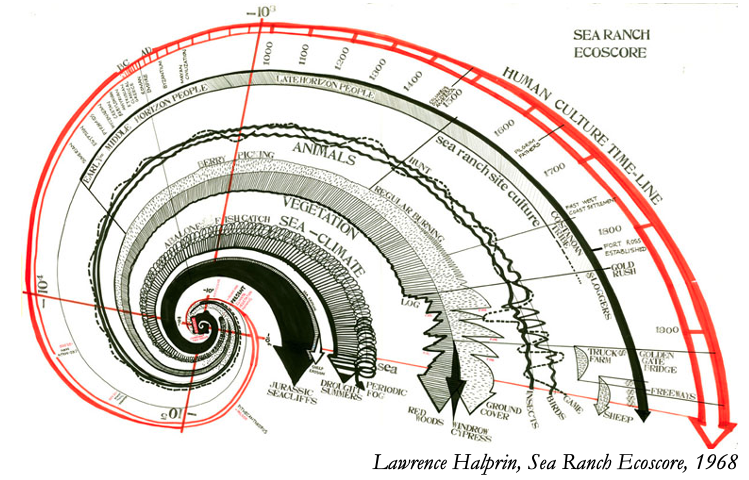LAR 388 Seminar
Wed 9:00am – 12:00pm, SUT 3.126
Open to LAR graduate students
Maggie Hansen: maggiehansen@utexas.edu
“Consider this utterly commonplace situation: A man is walking down the street. At a certain moment, he tries to recall something, but the recollection escapes him. Automatically, he slows down. Meanwhile, a person who wants to forget a disagreeable incident he has just lived through starts unconsciously to speed up his pace, as if he were trying to distance himself from a thing still too close to him in time. In existential mathematics, that experience takes the form of two basic equations: the degree of slowness is directly proportional to the intensity of memory; the degree of speed is directly proportional to the intensity of forgetting.”
—Milan Kundera, Slowness
This seminar will explore the potentials, and identify the limitations, of slow methods for knowing, imagining, and shaping landscape space. We will aim to glean methods for design exploration from the rise of slow food and slow cities that promote regionality and local authenticity, anti-consumerist and anti-capitalist thinking from degrowth scholarship, and ways of knowing place from practices of slow art, walking, and meditation. Our work will be informed by the work of scholars, practitioners and activists across disciplines. Weekly workshops will focus on testing practices of slowness to better understand our shared context in Austin. Across the semester, students will develop a portfolio of studies that explore the potential of a different tempo of engagement. We will experiment with alternate rhythms and methodologies, and document our findings.
We’ll identify the role of time and tempo in shaping relationships in an interdependent world.
We’ll consider methods from design and allied disciplines as ways to be, think, and act with the landscapes we inhabit and speculate on alternative rhythms for design methodologies.
We’ll develop skills of critical reading, design ethnography, mapping, system thinking, and spatial imagination.
We’ll examine the social, ecological and community implications of design as a professional practice.
We’ll explore drawing and writing as generative tools and processes of spatial inquiry.

